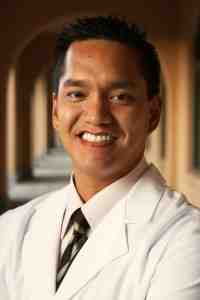Are holistic dentists quacks?

Holistic dentists are not a recognized specialty. You will not notice either cosmetic dentistry. So any general dentist can call themselves a holistic dentist or cosmetic dentist.
What is cheaper root canal or extraction?
Your tooth may be too damaged, rotten or unhealthy to be able to save it. Root canals are also expensive compared to extraction costs. Root canals can easily cost over $ 1,000 and a tooth is often pulled under $ 500. However, you should be aware that here is only the cost of extraction.
Should I get a root canal or an extraction?
Root canal has a better success rate than tooth extraction as there are few complications with the procedure in the future. Dentists make root canals to clean and restore an infected tooth. The tooth does not need to be removed or removed.
Is holistic dentistry covered by insurance?

Yes. You may get insurance to cover a holistic dentist. Probably what you are objecting to is getting one in your directory of providers because Holistic Dentistry is not a recognized specialty. A holistic dentist is a general dentist who has a certain philosophy in treatment.
Does health insurance cover holistic doctors?
Under California law, all providers are eligible for a refund if they provide a service within the legal scope of their license. Naturopathic medical doctors are primary care providers in the state of California.
Is removing amalgam fillings covered by insurance?
The cost of removing amalgam depends on how much your insurance pays for the procedure. Typical Dental PPO insurance may cover 80% of the cost of the fill removal. Most Insurance plans have a maximum annual benefit such as $ 1500- $ 5000 at which point the patient will have to pay 100% of the fee.
What is Alf therapy?
ALF is a cranial-based orthodontic system that uses a custom appliance made of lightweight, flexible wire. The ALF device exerts subtle forces on the bones, teeth and gums capable of resolving the root causes of crowded teeth, misalignments and unbalanced facial aesthetics.
What is the difference between a holistic dentist regular dentist?

In holistic dentistry, oral care goes beyond the teeth and gums. It focuses more on your whole body and its role in dental health. Holistic dentistry does not use mercury and fluoride fillings, unlike traditional dental care. … It is not clear whether it is necessarily safer or more effective than regular dentistry.
What do holistic dentist use for fillings?
Holistic Dentists Use Safer Materials Examples of these include mercury amalgam fillings, sealants containing BPA, and fluoride.
What is a natural dentist called?
What is a Biological Dentist? A biological dentist (also known as a holistic or natural dentist) operates according to the belief system that your oral health is fundamentally related to your overall health and well-being. They understand that oral problems can, and often do, affect other areas of the body.
What makes a dentist holistic?
Holistic dentists are general dentists with a dental degree and a dental license. They usually specialize in dental issues such as gum and cavity disease prevention. However, instead of prescribing traditional medicines, they offer natural treatments and care.
Are root canals necessary?
Patients will certainly need a root canal when pulp (the middle part of the tooth) is infected with disease or exposed by injury. The bacteria that can enter can destroy the rest of the tooth and the infection can eventually enter your bloodstream, causing serious illness.
What is a holistic orthodontist?
Holistic orthodontists tend to focus on the health of the whole body. … They understand how orthodontic care can help with issues such as sleep apnea, snoring, temporomandibular joint disorders, headaches, and other unrelated symptoms.
What is a holistic root canal?
A “holistic” root canal procedure is performed when a patient chooses not to have a “traditional” root canal endodontic procedure and would otherwise opt for extraction.